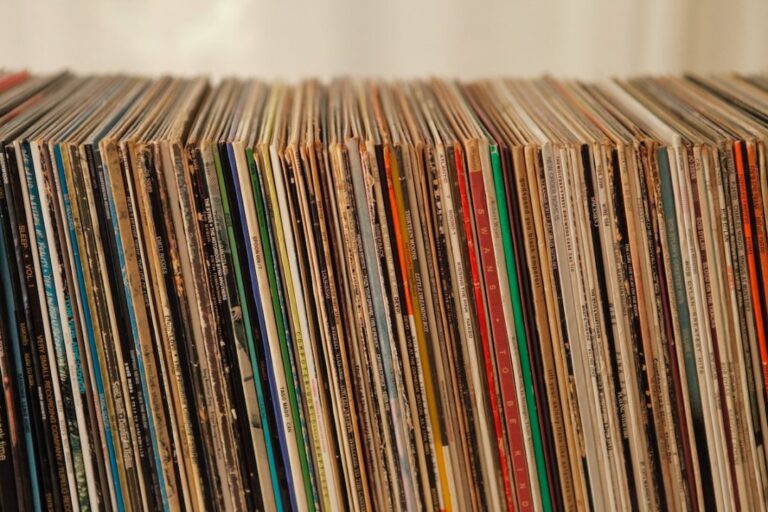In an era where our lives are increasingly dominated by screens and digital interfaces, a fascinating counterculture is emerging. More and more people are discovering that the ultimate luxury isn’t the latest smartphone or cutting-edge gadget – it’s the freedom to disconnect. From flip phones to vinyl records, from printed newsletters to in-person gatherings, analog technologies are making an unexpected comeback, offering a much-needed escape from our oversaturated digital world.
The New Status Symbol: Going Offline
Remember when owning the latest iPhone was the ultimate status symbol? Times are changing. Today, the ability to disconnect from the digital world is becoming the new marker of privilege and luxury. Tech industry professionals and knowledge workers are leading this shift, recognizing that constant connectivity often comes at the cost of genuine human experience and deep focus.
As Sean Thielen-Esparza, a tech interface designer, notes, “Going offline is a form of luxury.” It’s a way to signal status and differentiate oneself from the masses by participating in exclusive in-person networks and embracing quieter, more intentional forms of communication. This trend suggests that the real privilege in our hyper-connected world isn’t having the latest technology – it’s having the freedom to step away from it.
The Flip Phone Revolution
One of the most striking manifestations of this analog renaissance is the surprising comeback of flip phones. These “dumb phones,” as they’re sometimes called, are experiencing a surge in popularity, particularly among younger generations. In 2023, Nokia reported that sales of their basic mobile phones more than doubled compared to the previous year.
What’s driving this trend? For many, it’s about reclaiming control over their attention and time. August Lamm, a 28-year-old writer and artist, made the switch to a Nokia flip phone in 2022 after realizing how much Instagram was consuming her life. The movement has gained such momentum that even prestigious institutions are taking notice – Eton, the elite British boarding school, now requires incoming students to trade their smartphones for basic “brick phones.”
The Tangible Appeal of Physical Media
In the realm of entertainment, physical formats are experiencing an unexpected resurgence. Vinyl records, CDs, and even cassette tapes are gaining popularity, especially among younger listeners who crave a more intimate connection with their music.
The numbers tell an impressive story: physical music format revenues increased by 11% in 2023, reaching nearly $2 billion worldwide. Vinyl sales alone grew by 10%, outpacing CD sales. While Taylor Swift’s influence partly contributed to this trend (she accounted for 7% of US vinyl sales), the deeper appeal lies in the tangible, ritual-like experience these formats provide.
Related Stories
The Return of Print: A Luxury Reading Experience
Despite predictions of print’s demise, physical books, magazines, and newspapers are proving remarkably resilient. Print book sales have maintained impressive numbers, with over 750 million units sold annually. Meanwhile, ebook sales have slightly declined, suggesting that readers, particularly younger ones, prefer the tactile experience of physical books.
This trend extends to periodicals as well. The Atlantic, for instance, saw a 44% increase in newsstand sales between 2023 and 2024. Publishers are recognizing that print offers something digital formats can’t – an uninterrupted, focused reading experience free from the distractions of notifications and advertisements.
The Social Revolution: Returning to Real-World Connections
Perhaps the most significant aspect of this analog renaissance is the renewed emphasis on in-person social connections. While the internet hasn’t eliminated face-to-face interaction, it has dramatically altered how we socialize. Studies show that American adults spend 30% less time socializing in person than they did two decades ago, with teenagers experiencing an even more dramatic 45% decrease.
To counter this trend, there’s a growing movement centered around cultivating meaningful in-person interactions. Social clubs and salons are experiencing a revival, offering what Susan MacTavish Best, founder of Posthoc, describes as “a lot of what church has to offer — minus the God.” These gatherings provide something the digital world cannot: a genuine sense of belonging and community.
The Future of Analog in a Digital World
This shift toward analog technologies doesn’t necessarily signal a complete rejection of digital innovation. Instead, it suggests a growing desire for more thoughtful, intentional technology use. As Florian Kaps, founder of the analog manufacturing shop Supersense, explains, people are drawn to “technologies that slow you down at first but in the end offer a lot of feeling and sensation that digital tech cannot give you.”
The future might lie in finding a balance between digital convenience and analog satisfaction. Some innovators are already working on developing better technological interfaces that allow us to stay connected while maintaining our engagement with the physical world around us.
Embracing the Analog Renaissance
If you’re feeling overwhelmed by the constant demands of digital life, you’re not alone. The growing popularity of analog technologies suggests that many people are seeking ways to create more meaningful, intentional experiences in their daily lives.
Whether it’s switching to a flip phone, starting a vinyl collection, subscribing to a print magazine, or simply making more time for face-to-face conversations, there are many ways to participate in this analog renaissance. The key is finding the balance that works for you – one that allows you to enjoy the benefits of modern technology while preserving space for deeper, more authentic experiences.
As we continue to navigate our increasingly digital world, it’s worth remembering that sometimes the most innovative choice isn’t to embrace the newest technology, but to rediscover the enduring value of analog experiences. After all, as writer August Lamm suggests, our current digital obsession might one day be remembered as just another trend – “like bell bottoms” – while the fundamental human desire for tangible, real-world experiences remains constant.
The next time you find yourself mindlessly scrolling through your phone, consider taking a step back into the analog world. You might discover that the perfect escape from our digital lives isn’t forward into more technology, but backward into the simpler, more tactile pleasures that have always brought us joy.



